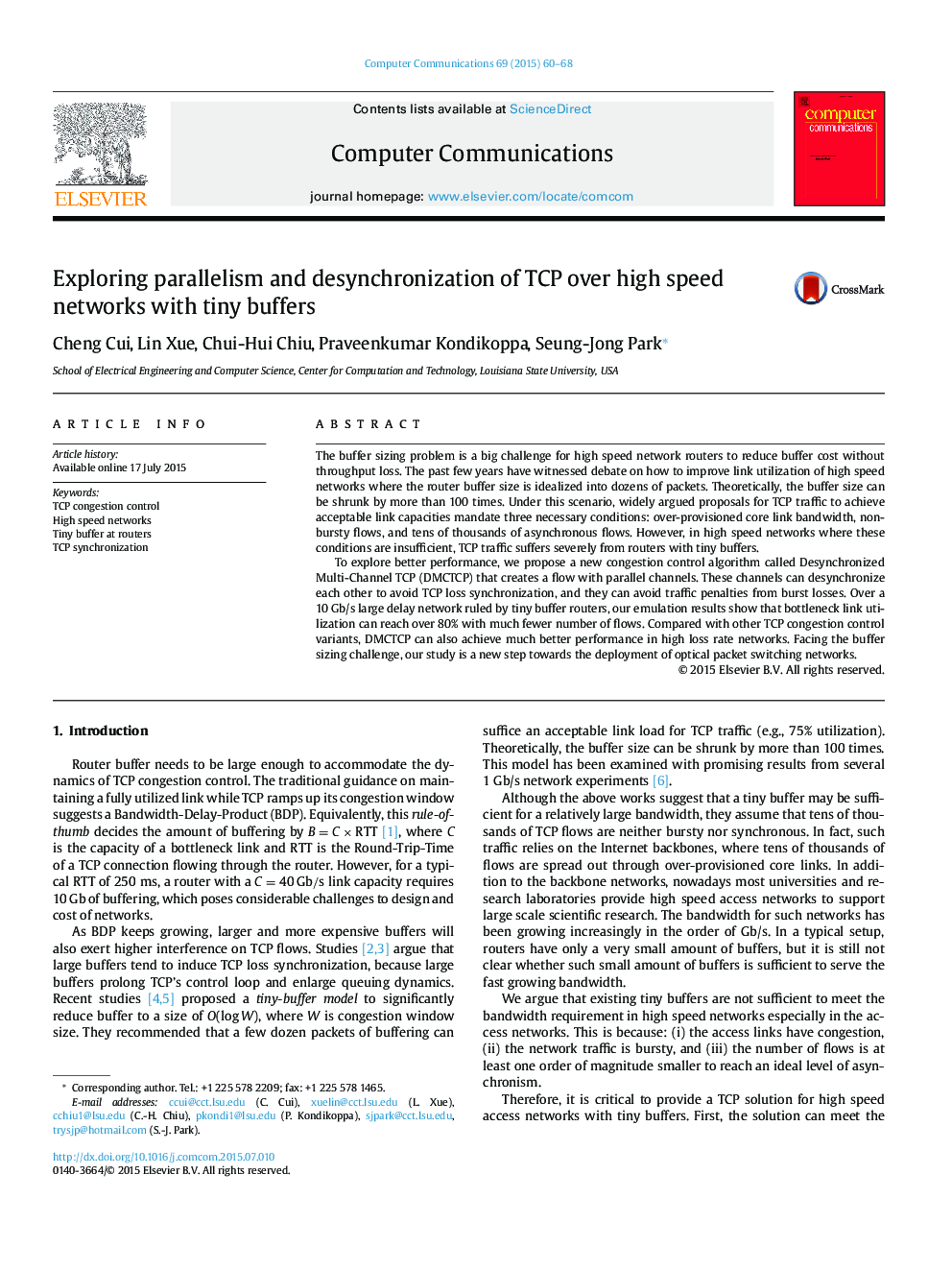| Article ID | Journal | Published Year | Pages | File Type |
|---|---|---|---|---|
| 449991 | Computer Communications | 2015 | 9 Pages |
•We identified a problem that the current TCP variants suffer from synchronization caused by tiny buffers at high speed networks.•We proposed and implement a new TCP that explores parallelism among multiple channels and TCP desynchronization for high speed networks.•We evaluated the performance of the new DMCTCP over different networking environment.•We analyzed the optimal performance of the proposed DMCTCP based on theoretical analysis.
The buffer sizing problem is a big challenge for high speed network routers to reduce buffer cost without throughput loss. The past few years have witnessed debate on how to improve link utilization of high speed networks where the router buffer size is idealized into dozens of packets. Theoretically, the buffer size can be shrunk by more than 100 times. Under this scenario, widely argued proposals for TCP traffic to achieve acceptable link capacities mandate three necessary conditions: over-provisioned core link bandwidth, non-bursty flows, and tens of thousands of asynchronous flows. However, in high speed networks where these conditions are insufficient, TCP traffic suffers severely from routers with tiny buffers.To explore better performance, we propose a new congestion control algorithm called Desynchronized Multi-Channel TCP (DMCTCP) that creates a flow with parallel channels. These channels can desynchronize each other to avoid TCP loss synchronization, and they can avoid traffic penalties from burst losses. Over a 10 Gb/s large delay network ruled by tiny buffer routers, our emulation results show that bottleneck link utilization can reach over 80% with much fewer number of flows. Compared with other TCP congestion control variants, DMCTCP can also achieve much better performance in high loss rate networks. Facing the buffer sizing challenge, our study is a new step towards the deployment of optical packet switching networks.
